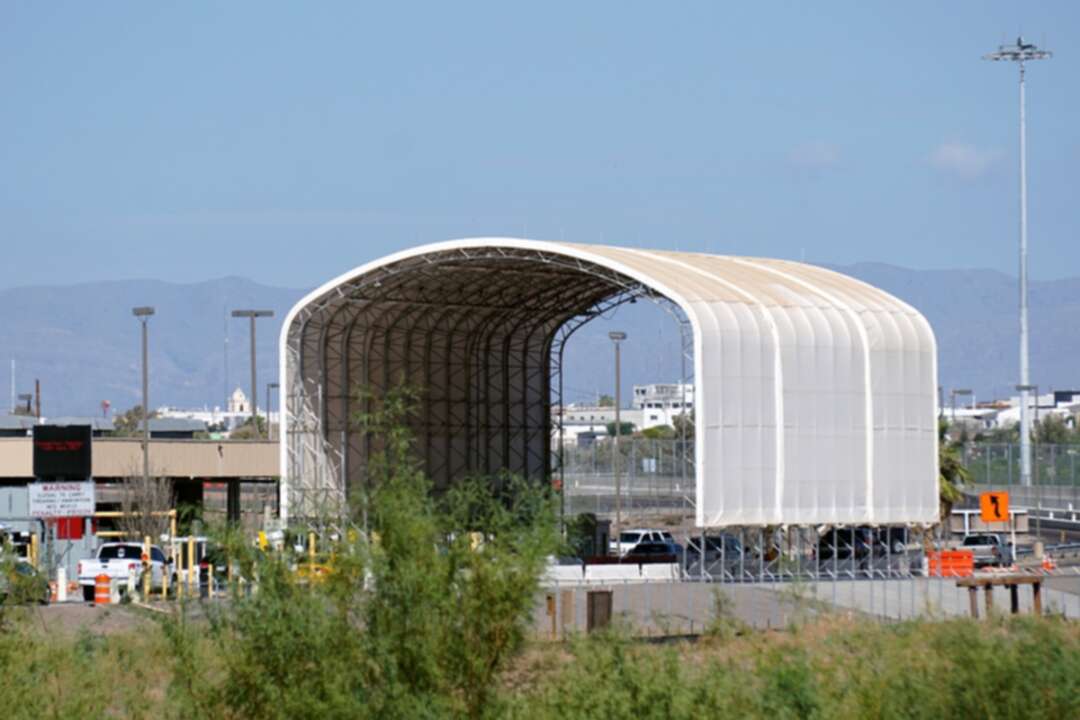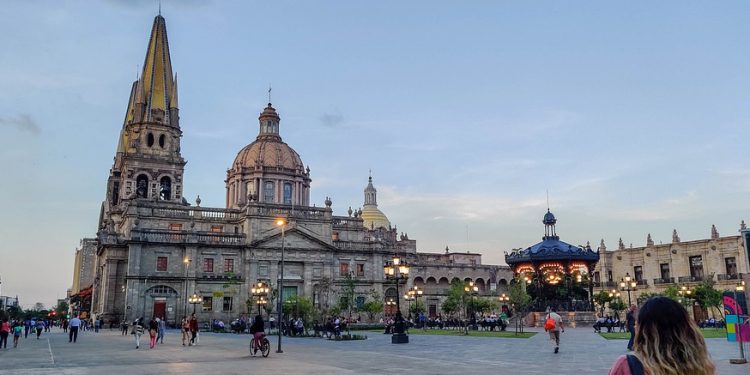-
Mexico hails opening border with US after more than 18 months of Covid restrictions

The Today Online reported according to Reuters, Mexico's president on Wednesday hailed a U.S. decision to open their shared border in November after more than 18 months of pandemic restrictions, though millions of Mexicans inoculated with Chinese and Russian vaccines face being shut out.
The report said, the world's busiest land border, where nearly a million people crossed each day before the coronavirus pandemic broke out, has been closed to non-essential travel since March 2020.
President Andres Manuel Lopez Obrador told his daily morning news conference: "The opening of the northern border has been achieved, we are going to have normality."
Foreign Minister Marcelo Ebrard added the United States would determine the exact date, but that it would be in early November.
With the United States planning to permit entry only to visitors inoculated with vaccines authorized by the World Health Organization (WHO), Lopez Obrador urged WHO to approve all other COVID-19 vaccines in public use.

Lopez Obrador said, in reference to slower certification for Russian and some Chinese vaccines: "The WHO must act correctly, without political or ideological tendencies, sticking to the science."
Read more: Joe Biden unveils plans to expand offshore wind turbines to US coasts
According to the report, the closure of the 1,954-mile (3,144-km) border dealt a blow to businesses on both side of the frontier. In Texas border counties alone, the loss of Mexican shoppers and visitors caused around $4.9 billion in lost GDP in 2020, a report by the Baker Institute calculated.
More than 950,000 people entered the United States from Mexico on foot or in cars on a typical day, according to 2019 U.S. Customs and Border Protection (CBP) agency data.
VACCINATED AGAIN
U.S. Homeland Security Secretary Alejandro Mayorkas earlier said U.S. borders with Canada and Mexico would reopen in November for fully vaccinated travelers. U.S. officials last week said international visitors will need to be inoculated with U.S. or WHO-authorized vaccines.
This poses a problem for Mexico, which has inoculated millions of people with Russia's Sputnik V and China's Cansino - neither of which is WHO-approved.
Read more: Sputnik Light vaccine demonstrates 70 percent efficacy against Delta variant
Mexico has signed agreements for Sputnik to inoculate another 12 million people, and Cansino, another 35 million people, according to the foreign ministry.
Sergio Flores, who lives in the northern border state of Baja California and often crosses into the United States with his family, said he first got the Cansino jab because it was the only option.
Then he saw rumours on social media that he would not be able to cross the border with the Chinese formula, and went to the United States to look for an alternative.
He said: "I went to get the other one, Pfizer, it was the first thing that came to mind."
Read more: WHO nominates 26 experts to join Sago as last chance to find Covid origins
Foreign minister Ebrard said the border reopening will coincide with a push to reactivate economic activities in the frontier region, where Mexico has strived to bring vaccination rates in line with the United States.
He said high-level bilateral economic meetings in November will focus on the border area, and other meetings in the coming days will work out details of the reopening.
Mexico had been strongly pushing Washington for the reopening, including laying out proposals during a visit by U.S. Vice President Kamala Harris, Ebrard added.
The United States "accepted many proposals that we made along the way to achieve this", Ebrard said, without giving details.
Source: todayonline
You May Also Like
Popular Posts
Caricature
BENEFIT Sponsors BuildHer...
- April 23, 2025
BENEFIT, the Kingdom’s innovator and leading company in Fintech and electronic financial transactions service, has sponsored the BuildHer CityHack 2025 Hackathon, a two-day event spearheaded by the College of Engineering and Technology at the Royal University for Women (RUW).
Aimed at secondary school students, the event brought together a distinguished group of academic professionals and technology experts to mentor and inspire young participants.
More than 100 high school students from across the Kingdom of Bahrain took part in the hackathon, which featured an intensive programme of training workshops and hands-on sessions. These activities were tailored to enhance participants’ critical thinking, collaborative problem-solving, and team-building capabilities, while also encouraging the development of practical and sustainable solutions to contemporary challenges using modern technological tools.
BENEFIT’s Chief Executive Mr. Abdulwahed AlJanahi, commented: “Our support for this educational hackathon reflects our long-term strategic vision to nurture the talents of emerging national youth and empower the next generation of accomplished female leaders in technology. By fostering creativity and innovation, we aim to contribute meaningfully to Bahrain’s comprehensive development goals and align with the aspirations outlined in the Kingdom’s Vision 2030—an ambition in which BENEFIT plays a central role.”
Professor Riyadh Yousif Hamzah, President of the Royal University for Women, commented: “This initiative reflects our commitment to advancing women in STEM fields. We're cultivating a generation of creative, solution-driven female leaders who will drive national development. Our partnership with BENEFIT exemplifies the powerful synergy between academia and private sector in supporting educational innovation.”
Hanan Abdulla Hasan, Senior Manager, PR & Communication at BENEFIT, said: “We are honoured to collaborate with RUW in supporting this remarkable technology-focused event. It highlights our commitment to social responsibility, and our ongoing efforts to enhance the digital and innovation capabilities of young Bahraini women and foster their ability to harness technological tools in the service of a smarter, more sustainable future.”
For his part, Dr. Humam ElAgha, Acting Dean of the College of Engineering and Technology at the University, said: “BuildHer CityHack 2025 embodies our hands-on approach to education. By tackling real-world problems through creative thinking and sustainable solutions, we're preparing women to thrive in the knowledge economy – a cornerstone of the University's vision.”
opinion
Report
ads
Newsletter
Subscribe to our mailing list to get the new updates!






















